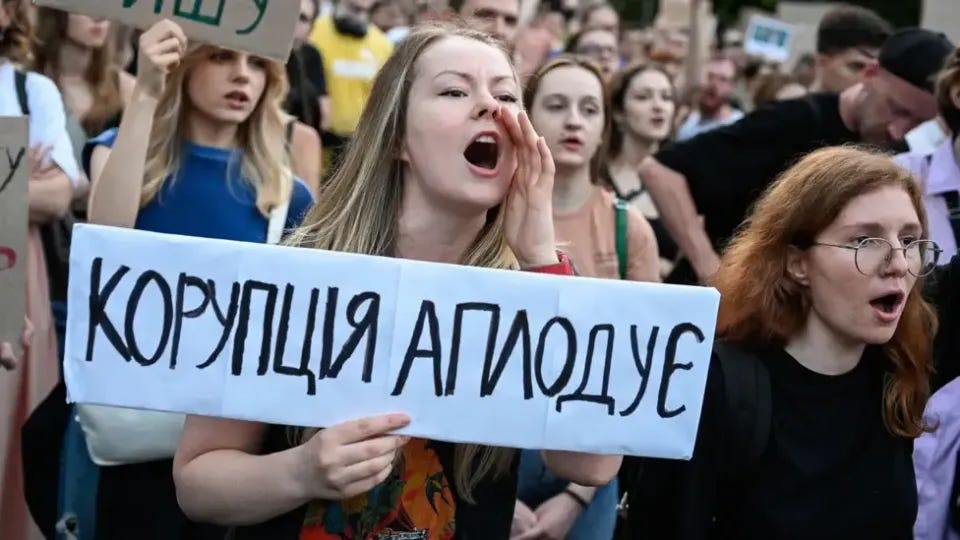Kyiv Hammers Its Graft Watchdogs, Brussels Sounds Alarm
What happened?
On July 22, Zelenskyy signed bill 12414, placing the National Anti-Corruption Bureau (NABU) and the Specialized Anti-Corruption Prosecutor's Office (SAPO) under the direct control of the Prosecutor General. Zelenskyy insisted that the agencies "will work, only without Russian influence," and he vowed to revive billion-hryvnia cases that had been left "hanging" for a long time. For the second day in a row, protesters took to the streets in Kyiv, Lviv, and Dnipro, denouncing the law as a power grab. MP Yaroslav Zheleznyak said he is collecting signatures to ask the Constitutional Court to strike down the bill. EU enlargement chief Marta Kos warned that the move "dismantles key safeguards" and endangers accession talks. The OECD and US allies have echoed these concerns.
Source: Alex Babenko/AP (The biggest protests in Kyiv since the war with Russia began, sparked by Zelenskyy on July 22, 2025)
Why does this matter?
EU doors closing: Rule-of-law backsliding threatens Kyiv's candidate status and €50 billion in pledged macro-aid. The OECD also cautions that defence and reconstruction investors could walk away.
Domestic legitimacy: The largest street rallies since 2022 signal public fatigue with wartime decree-making. Russian outlets are framing the law as proof that Kyiv is "no better than Moscow," which muddies Western messaging.
Lack of leadership credibility: New PM Svyrydenko's assertion that corruption concerns in Ukraine are "exaggerated" further undermines confidence in her reform agenda and general capability.
What's the counterpoint?
Zelenskyy argues that centralizing oversight will speed up investigations and prevent Russian infiltration. Prosecutor General Kravchenko promises not to "abuse" his new powers and pledges to revive dormant mega-cases. After years of agency turf wars, some local business groups quietly welcome a single chain of command.
finformant view
Brussels is unlikely to immediately revoke candidate status, but accession momentum has stalled. EU disbursements will slow while Kyiv scrambles to amend the law. Svyrydenko's shaky start—dismissing corruption as overblown—makes a U-turn harder. This leaves Ukraine with fewer friends abroad and more protesters at home.



